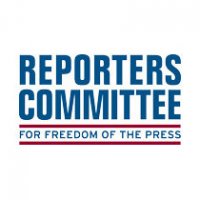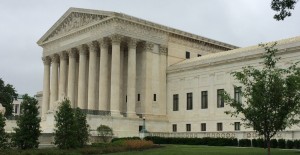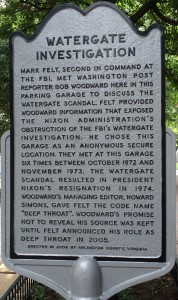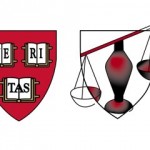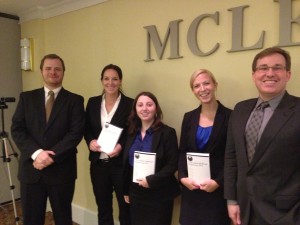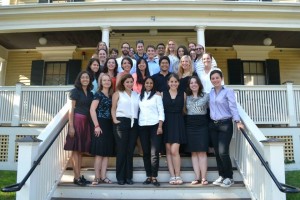In a humble office above a Dupont Circle bagel shop in Washington, D.C., a very small army of dedicated attorneys fights to protect your digital privacy. They vigilantly watch the watchers, among them the actual U.S. Army with its “surveillance blimps.” They comb through public records to expose secret surveillance. They use their expertise to champion privacy at every level of the courts. They educate the public and government officials about the many threats to privacy and civil liberties created by government and private data collection. They are EPIC. In its twenty years of existence, the Electronic Privacy Information Center (EPIC) has been privacy’s best advocate since Justices Warren and Brandeis defined the right to privacy in 1890. During the summer of 2014, I got to join EPIC as an Internet Public Interest Opportunities Program (IPIOP) Clerk.
During my first week at EPIC, I met Edward Snowden’s parents. They were accepting EPIC’s annual Champions of Freedom award on Snowden’s behalf. During a celebratory dinner, some of the foremost privacy scholars spoke about EPIC’s vital contributions to privacy and civil liberties. I knew I had come to a special place.
IPIOP is designed to educate and train law students in the practice of public interest privacy law. Aside from working on exciting cases, we had weekly training sessions on aspects of privacy advocacy: amicus briefs, comments on agency rulemakings, the Freedom of Information Act (FOIA), etc. This combination of work and training not only deepened my knowledge of privacy law but also gave me insight into how to use litigation, FOIA, administrative remedies, and other tools to protect privacy and civil liberties in the digital world. Different privacy problems call for different remedies, and throughout the summer I learned to identify those channels for relief. For example, the Federal Trade Commission’s authority to prevent unfair and deceptive trade practices has become a relatively promising (if sometimes disappointing) avenue for protecting consumers’ privacy against commercial data collection. When we learned that Facebook had disclosed users’ data for psychological research, I helped EPIC file an FTC complaint claiming that the practice was unfair and deceptive.
I also learned how to use FOIA to uncover hidden details about government surveillance and data collection. I filed (and appealed) a FOIA request to find out more information about the FBI’s Next Generation Identification (NGI) program, which is currently being implemented by state and local law enforcement agencies. The program outfits law enforcement with facial recognition, iris scanning, and other technologies to identify individuals using a large biometric database compiled by the FBI. I asked for information about the use of mobile biometric applications—cell phone apps that officers can use in the field to identify individuals based on their faces, irises, fingerprints, etc.—in connection with NGI.
Of course, the courts are an important forum for privacy law. EPIC uses its privacy expertise to file amicus briefs in cases that can use its help. I was able to propose and help draft EPIC’s amicus brief in Smith v. Obama, a Ninth Circuit appeal challenging the NSA’s collection of phone records. This was a fun extension of my work at the Electronic Frontier Foundation, where I also worked on a phone records collection case.
When it comes to digital data, individuals cannot fully protect their own privacy, in part because data collection practices are not transparent. Advocacy organizations like EPIC perform the necessary functions of uncovering and pushing back against these surreptitious, overreaching, and often illegal practices. My IPIOP clerkship was a unique opportunity to learn not only the substantive law of privacy but also the processes through which public interest groups accomplish their goals.
Natasha Duarte is a dual-degree student and Roy H. Park Fellow in the J.D./M.A. program in the Schools of Law and Journalism. Her areas of interest are technology law and digital civil liberties, particularly privacy and free speech issues.

